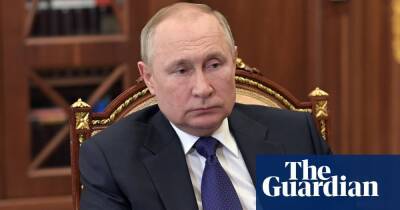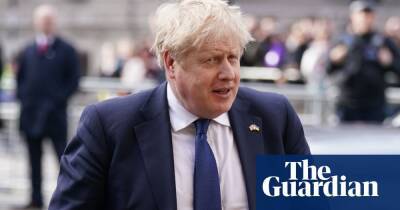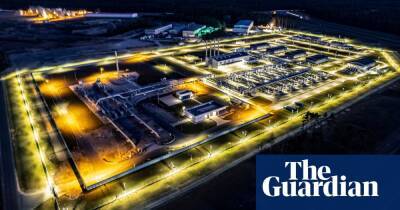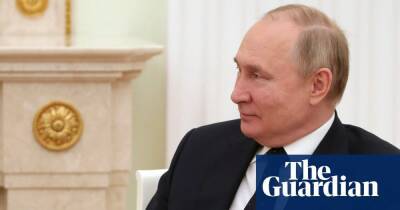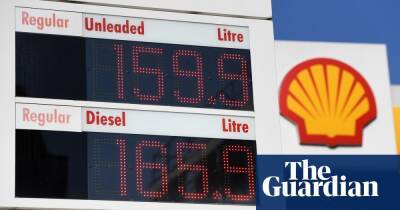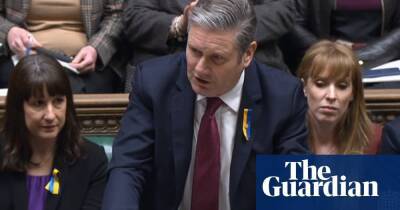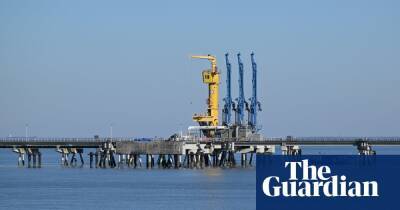West feeling impact of Russia sanctions too as oil and gas prices soar
One of the ironies of the war in Ukraine is that the Kremlin’s finances benefit every time the crisis deepens. After Saudi Arabia, Russia is the second biggest exporter of crude oil, and it is out on its own as an exporter of natural gas.
Countries producing more oil and gas than they consume enjoy windfall gains when prices rise – and Russia falls into that category.
Conversely, countries not self-sufficient in energy suffer when prices are high because costs for business rise and consumer spending power is squeezed. There is a lively debate about whether the US is self-sufficient in energy, but it is certainly a lot less dependent on imports than the European Union, which gets 40% of its natural gas from Russia.
Europe is a lot more vulnerable to a loss of Russian energy supplies than the US, and that helps explain why the German chancellor, Olaf Scholz, is more cautious than Washington over extending the west’s sanctions regime to oil and gas – at least for now.
After Antony Blinken, Joe Biden’s secretary of state, sent prices rocketing by saying the US and its allies were actively considering adding oil and gas to the sanctions list, Scholz said Russian energy was “essential” to Europeans’ daily lives.
Boris Johnson also expressed caution, making it clear that a ratcheting-up of sanctions to include oil and gas could not happen overnight. The prime minister’s warning came as the cost of unleaded petrol on UK forecourts hit 155p a litre, according to the RAC.
The International Monetary Fund is concerned about the impact of energy prices on a global economy still recovering from the Covid-19 pandemic, with the fear that the hit to demand in energy-consuming countries will not be offset by a increase in spending by energy
Read more on theguardian.com

